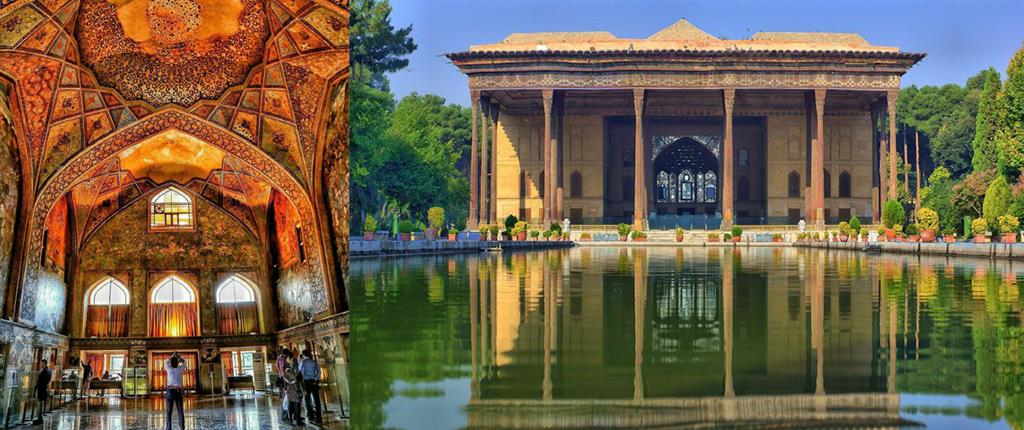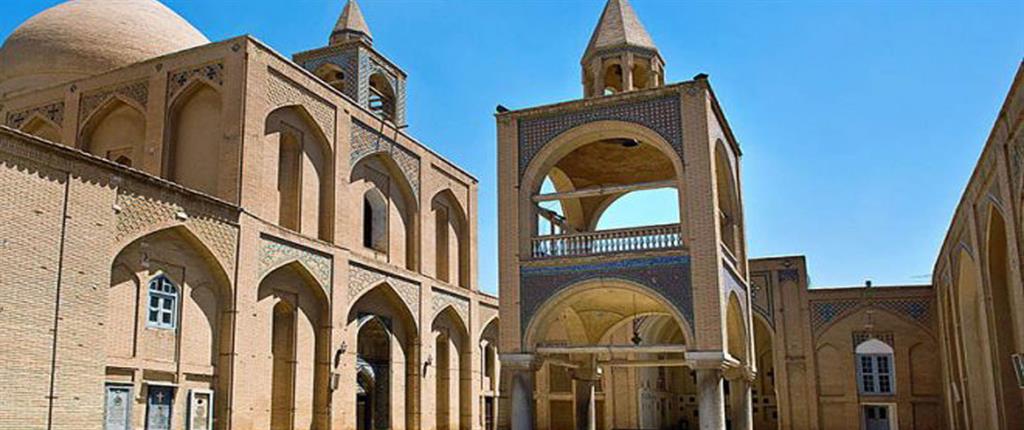Isfahan city
Amongst Iranian cities Isfahan is a unique jewel that still has a noble and fascinating shining after many historical fluctuations and the passage of several centuries. It is so fresh as if it has come to life on this very day; and yet it is so original and deep rooted as if it has always been there.Isfahan's rich culture and beautiful nature are in such a wonderful harmony that they seem to be each other's reflection.Isfahan may be a complete manifestation of the Iranian-Islamic civilization, culture and arts that are as old as Iran herself.
Isfahan: The City Of Four Seasons
The city of Isfahan is located in the central part of Isfahan province on the plains that are situated alongside Zayandehrood. Isfahan province itself is located in a rather mountainous region in the center of the Iranian plateau spanning from the snow-capped zagross mountains in the west to the central desert in east and north. There are many climatic variations in the province due to varying altitudes. Generally, with the declining altitude from west to east, the temperature rises while precipitation declines. A breeze flows across Isfahan throughout the four seasons. Particularly the westerly and southwesterly winds of spring and autumn coming along the river Zayandehrood lend a certain delicacy to the city's climate.Isfahan is a city of regular seasonal changes. Spring begins in late March with blossoming trees, summer begins in late June, autumn starts in late September with falling leaves and a cold winter begins in late December. Of all these seasons and months, Isfahan is in its most glorious state in May when a breeze comes from heaven to a colorful city of fresh favorable climate and fascinating light. Isfahan is a city full of sunlight. It is sunny in almost three fourth of the year.

Isfahan: The Museum Where People Live
With its age-old history and numerous ancient monuments Isfahan is one of the exemplary cities of the world. According to French author, Andre Malraux, only Florence and Peking can be compared to Isfahan.The historical monuments of Isfahan comprise a collection of the finest examples of various styles of Persian architecture within a thousand years and more. The quality and quantity of these works of art are great works and masterpieces of the Persian post-Islamic architecture .Among the historical monuments of Isfahan, one can see various types of Domes, Tile work, Plaster work, Fresco and Calligraphy at their best. Works that reveal the religious faith of their creators and fascinate the viewer so overwhelmingly that he or she is pulled into their times and feels himself or herself in a world of light, delicacy and agility.

Isfahan: A World Of Art
Isfahan may be well named the city of Iranian handicraft and traditional arts. The global fame of Isfahan's traditional arts and handicraft is age-old. The products of this form of art constitute a major part of Iran's export, particularly to Europe.The contemporary traditional arts and handicraft of Isfahan is in fact a continuation of the Safavid period art by master craftsmen. The objects they produce are appreciated and welcomed by Iranians and foreigners alike, and constitute a major item in exports from Isfahan.Carpet weaving, engraving, miniature painting, Inlaid work, tile making, brocade, calico and enamelwork are among the most important forms of art in Isfahan.The contemporary artists of Isfahan have made new innovations in recent years in the areas of miniature painting, tile making and engraving.Isfahan also has a long lasting musical tradition. Today, scholars of music speak of the Isfahan style in the Iranian music.
Isfahan Today
Isfahan has undergone an eyecatching growth and development in recent decades. It has found the face of a modern city with its increasing population, expanding area and new streets, buildings and factories. Isfahan's growth has found a particularly faster momentum following the Islamic revolution; yet, with all these changes it has preserved its originality.